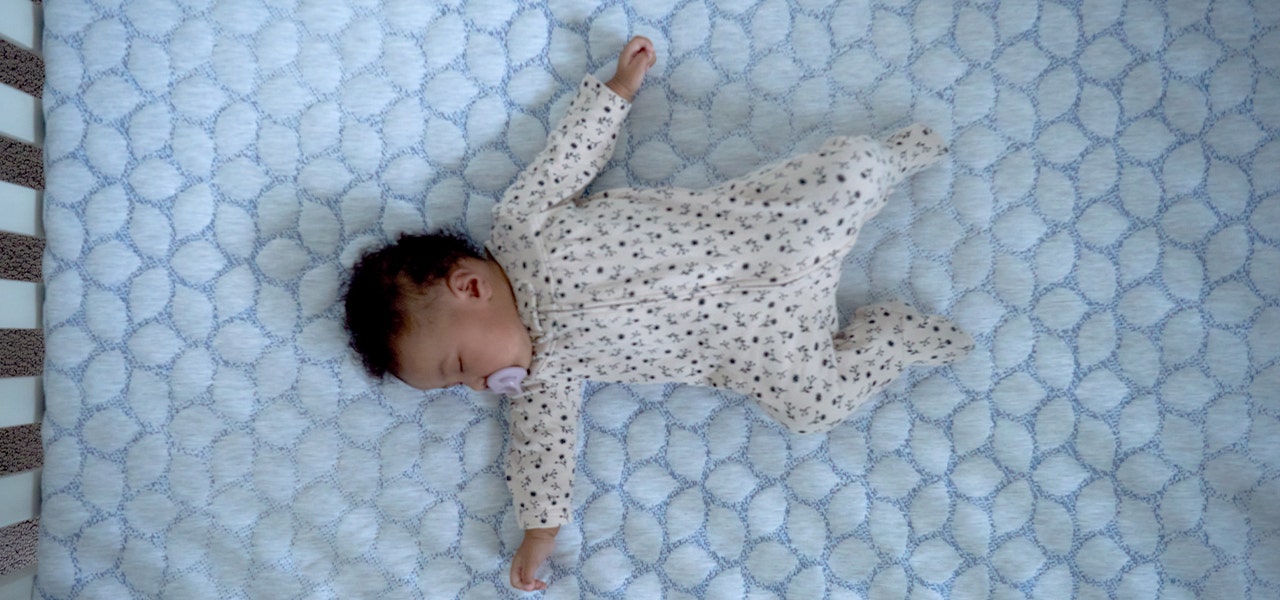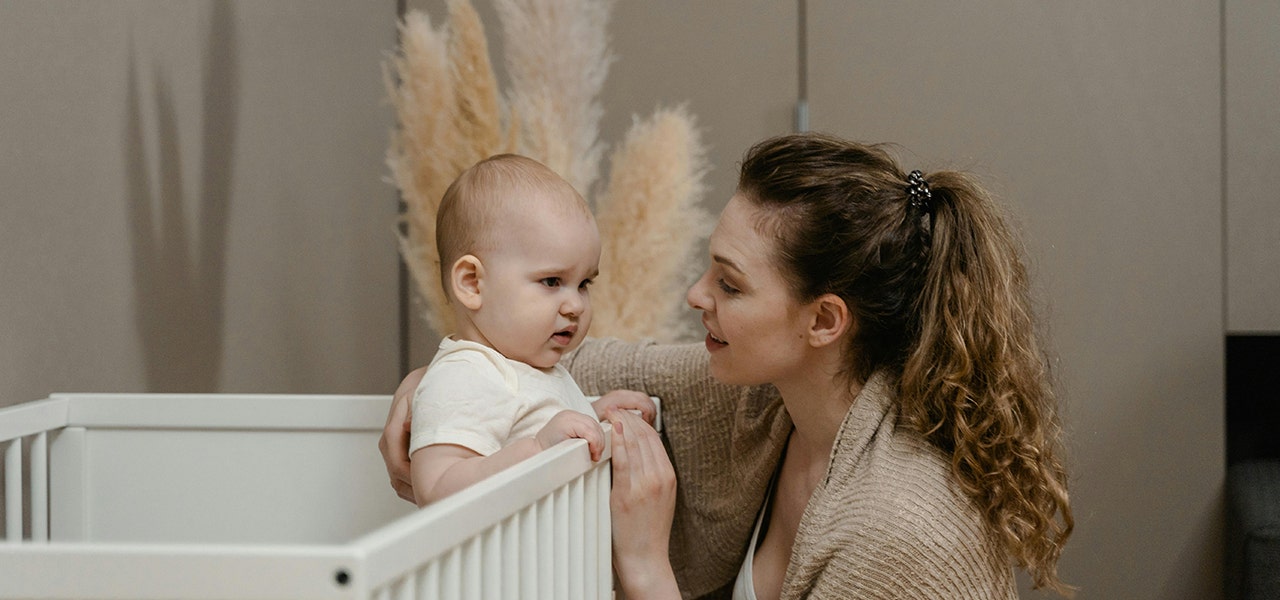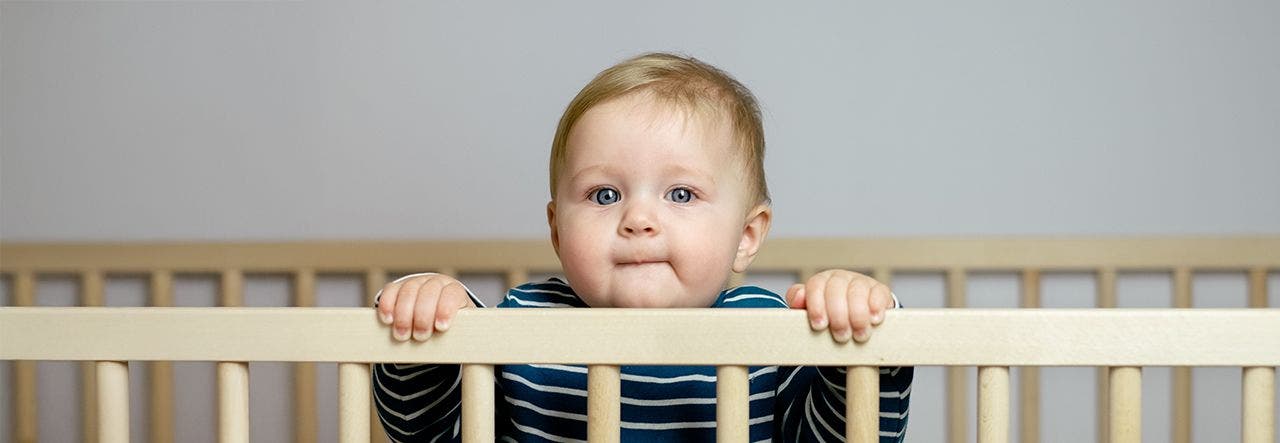How to Handle Sleep Regression Without Losing Your Mind
Just when you think you've mastered your little one's sleep schedule - peaceful bedtimes, solid night sleep, perfect naps – everything changes out of nowhere.
We've all been there! Your sweet sleeper is suddenly waking up every few hours and seems to think nap time is optional. Sound familiar? Welcome to sleep regression, parents. Don't worry, you haven't done anything wrong! Sleep regression is a perfectly normal (but definitely exhausting) part of your child's development. It's actually a sign that your little one is growing and learning exciting new skills.
Whether this is your first dance with sleep regression or you're a pro by now, we're here to help you understand what's happening and share some gentle ways to get through it. Because thankfully, this phase won't last forever.
What Is Sleep Regression and Why Does it Happen?
If your little one's sleep habits have taken a sudden turn, you might be wondering what's going on. Sleep regression happens when a child who was sleeping well starts having trouble at bedtime, wakes up more often at night, or fights those once-peaceful naps.
It’s not all bad news – this usually happens because your kiddo is hitting amazing developmental milestones! They might be learning to roll over, starting to crawl or learning new words. Their busy little minds and bodies just don't want to slow down! Other times, sleep regression can pop up during big changes in your little one's life. Maybe they're starting daycare, getting over a cold or adjusting to a new schedule. Even exciting things like holidays or family visits (hello, holiday season!) can shake up their sleep routine.
Stages of Sleep Regression
Sleep regression seems to show up right when you think you've got baby’s sleep all figured out. Let's look at when these phases typically happen – and why.


The 4-Month Sleep Regression
Around four months, your baby's sleep cycles start changing to become more like yours. They're hitting exciting milestones like rolling over and becoming more world-aware. Both their mind and body are working overtime!
The 6-Month Stage
Six months brings new adventures. Sitting up, maybe crawling and trying solid foods. With all these big changes happening at once, sleep disruption is normal.
The 8-10 Month Phase
Your little explorer is on the move! Between crawling, learning to stand and separation anxiety, sleep might not be the first thing on your busy baby’s mind.
The 12-Month Mark
Walking, talking and transitioning from two naps to one – your 1-year-old is going through some big changes. These sleep hiccups are just signs of their development.
The 18-Month Challenge
Your toddler is testing boundaries, dealing with teething and experiencing big emotions. It's a lot to process, even during sleep time.
The 2-Year Milestone
Two-year-olds are discovering their imagination and growing vocabulary. This age brings new bedtime challenges, but also new opportunities to help them learn good sleep habits.
How Long Does Sleep Regression Last?
Thankfully, sleep regressions often last between two to six weeks. Every child moves through these phases differently. Some little ones might bounce back to their regular sleep habits in a few weeks. Others might need a bit more time to adjust.
So what affects how long it lasts? Things like your little one's ability to self-soothe, how consistent their bedtime routine is and their developmental milestones can all play a part. Remember, this isn't a test of your parenting skills. Your kiddo will find their way back to better sleep.
Strategies to Help Your Baby Through Sleep Regression
Every parent deserves a good night's sleep, and so does every little one! While we can't fast-forward through sleep regression, we can help make it more manageable. Here are some gentle ways to help your family through this phase:


1. Keep Your Bedtime Routine Solid
A consistent bedtime routine is like a cozy blanket. Bath time, storytime, lullabies – whatever your routine includes, try to stick with it. This predictability helps your kiddo know what to expect.
2. Watch Those Wake Windows
During sleep regression, it's important to watch for sleepy cues. An overtired baby will have an even harder time settling down! Try to get them down for sleep when you spot those first yawns or eye rubs.
3. Adjust Naps When Needed
Sometimes, sleep regression calls for a nap schedule tweak. Your baby's sleep needs change as they grow. What worked perfectly last month might need adjusting now. Here's what's typical:
- Newborns: Four to six naps
- 4-5 months old: Three to four naps
- 6 months old: Three naps
- 8 months old: Two to three naps
- 12 months old: Two naps
4. Create a Sleep-Friendly Environment
A cozy sleep space can make a world of difference during sleep regression. Keep the room dark, quiet and at a comfortable temperature. And don't forget about what your little one is sleeping on – a safer, comfier mattress is key to sweet dreams.
At Lullaby Earth, we've poured our hearts (and lots of research!) into creating a safer crib mattress for your baby. Made by parents and engineers who understand what babies need for their best sleep, our mattresses combine safety, comfort and convenience that make parents' lives easier.
5. Be Patient and Flexible
Found your little one practicing their new crawling skills at naptime instead of sleeping? That's normal! When babies are learning new skills, they’ll want to practice them 24/7 (even when they should be sleeping). Give them plenty of time during the day to work on these exciting new abilities. This extra practice during awake time can help reduce those midnight training sessions.
Remember, this phase is temporary. Even though it might not feel like it during those middle-of-the-night wake-ups, your little one will find their way back to better sleep. You've got this!
Should You Sleep Train During Sleep Regression?


Many parents wonder if sleep regression is the right time to start sleep training. While there's no one-size-fits-all answer, we can help you think it through!
Sleep training during regression can be tricky. Your little one might need extra comfort and support during this time, so starting a strict sleep training program might not feel right for your family right now. If you're already in the middle of sleep training when regression hits, it's okay to be a bit more flexible. You can offer extra cuddles and comfort while still maintaining the core of your routine. Trust your parenting instincts on what your kiddo needs.
When to Seek Professional Advice
While sleep regressions are normal, sometimes you might need a little extra support. Here's when to reach out to your pediatrician:
- If your little one's sleep troubles last longer than six weeks
- When sleep issues are accompanied by other concerning changes in behavior or development
- If your parental instinct tells you something's not quite right
- When you're feeling overwhelmed and need professional guidance
Sometimes getting an expert's perspective can give you the peace of mind you need.
Parents, You’ve Got This!
Sleep regression isn't easy: on you or your little one. Those middle-of-the-night wake-ups and skipped naps can leave everyone feeling a bit worn out.
Remember, sleep regression is actually a sign that your baby is growing, learning and reaching exciting new milestones. Even when it doesn't feel like it, this is all part of their beautiful development journey. Keep those bedtime routines consistent, offer extra snuggles when needed and, most importantly, be gentle with yourself during this phase.
Want more sleep tips for your little one? Check out these helpful posts:

 Baby
Baby

 Kids
Kids

 Learn
Learn

 FIND A STORE
FIND A STORE CONTACT
CONTACT